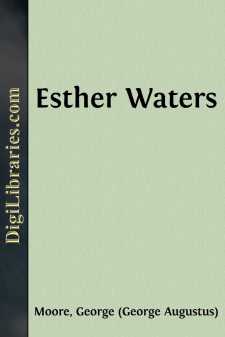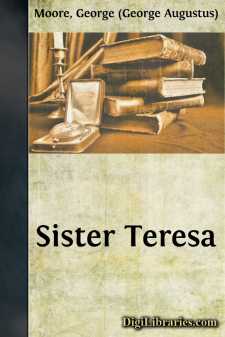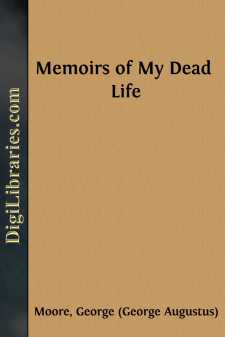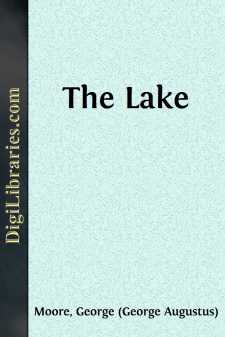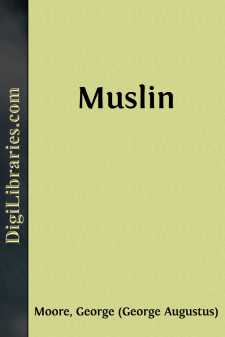Categories
- Antiques & Collectibles 13
- Architecture 36
- Art 48
- Bibles 22
- Biography & Autobiography 813
- Body, Mind & Spirit 142
- Business & Economics 28
- Children's Books 13
- Children's Fiction 10
- Computers 4
- Cooking 94
- Crafts & Hobbies 4
- Drama 346
- Education 46
- Family & Relationships 57
- Fiction 11828
- Games 19
- Gardening 17
- Health & Fitness 34
- History 1377
- House & Home 1
- Humor 147
- Juvenile Fiction 1873
- Juvenile Nonfiction 202
- Language Arts & Disciplines 88
- Law 16
- Literary Collections 686
- Literary Criticism 179
- Mathematics 13
- Medical 41
- Music 40
- Nature 179
- Non-Classifiable 1768
- Performing Arts 7
- Periodicals 1453
- Philosophy 64
- Photography 2
- Poetry 896
- Political Science 203
- Psychology 42
- Reference 154
- Religion 513
- Science 126
- Self-Help 84
- Social Science 81
- Sports & Recreation 34
- Study Aids 3
- Technology & Engineering 59
- Transportation 23
- Travel 463
- True Crime 29
George (George Augustus) Moore
George Augustus Moore (1852–1933) was an influential Irish novelist, short story writer, poet, art critic, and memoirist. He was known for his pioneering role in introducing naturalism to English literature, drawing inspiration from French literary realism, particularly the works of Émile Zola. Among his notable works are "Esther Waters," which addresses issues of poverty and single motherhood, and "Confessions of a Young Man," a semi-autobiographical novel that reflects his artistic journey and personal experiences.
Author's Books:
Sort by:
I She stood on the platform watching the receding train. A few bushes hid the curve of the line; the white vapour rose above them, evaporating in the pale evening. A moment more and the last carriage would pass out of sight. The white gates swung forward slowly and closed over the line. An oblong box painted reddish brown and tied with a rough rope lay on the seat beside her. The movement of her back...
more...
I The lamp had not been wiped, and the room smelt slightly of paraffin. The old window-curtains, whose harsh green age had not softened, were drawn. The mahogany sideboard, the threadbare carpet, the small horsehair sofa, the gilt mirror, standing on a white marble chimney-piece, said clearly, 'Furnished apartments in a house built about a hundred years ago.' There were piles of newspapers,...
more...
SISTER TERESA As soon as Mother Philippa came into the parlour Evelyn guessed there must be serious trouble in the convent. "But what is the matter, Mother Philippa?" "Well, my dear, to tell you the truth, we have no money at all." "None at all! You must have some money." "As a matter of fact we have none, and Mother Prioress won't let us order anything from the...
more...
APOLOGIA PRO SCRIPTIS MEIS [The APOLOGIA which follows needs, perhaps, a word of explanation, not to clear up Mr. Moore's text—that is as delightful, as irrelevantly definite, as paradoxically clear as anything this present wearer of the Ermine of English Literature has ever written—but to explain why it was written and why it is published. When the present publisher, who is hereinafter, in...
more...
CHAPTER I It was a beautiful summer morning, and Rodney was out of his bed at six o'clock. He usually went for a walk before going to his studio, and this morning his walk had been a very pleasant one, for yesterday's work had gone well with him. But as he turned into the mews in which his studio was situated he saw the woman whom he employed to light his fire standing in the middle of the...
more...
CHAPTER I Oaths, vociferations, and the slamming of cab-doors. The darkness was decorated by the pink of a silk skirt, the crimson of an opera-cloak vivid in the light of a carriage-lamp, with women's faces, necks, and hair. The women sprang gaily from hansoms and pushed through the swing-doors. It was Lubini's famous restaurant. Within the din was deafening. "What cheer,...
more...
ÉPÎTRE DÉDICATOIRE 17 Août, 1905. MON CHER DUJARDIN, Il se trouve que je suis ÐÑ Paris en train de corriger mes épreuves au moment où vous donnez les dernières retouches au manuscrit de 'La Source du Fleuve Chrétien,' un beau titre—si beau que je n'ai pu m'empêcher de le 'chipper' pour le livre de Ralph Elles, un personnage de mon roman qui ne parait...
more...
CHAPTER ONE The thin winter day had died early, and at four o'clock it was dark night in the long room in which Mr. Innes gave his concerts of early music. An Elizabethan virginal had come to him to be repaired, and he had worked all the afternoon, and when overtaken by the dusk, he had impatiently sought a candle end, lit it, and placed it so that its light fell upon the jacks.... Only one more...
more...
CHAP. I. It was at the end of a summer evening, long after his usual bedtime, that Joseph, sitting on his grandmother's knee, heard her tell that Kish having lost his asses sent Saul, his son, to seek them in the land of the Benjamites and the land of Shalisha, whither they might have strayed. But they were not in these lands, Son, she continued, nor in Zulp, whither Saul went afterwards, and...
more...
MUSLIN I The convent was situated on a hilltop, and through the green garden the white dresses of the schoolgirls fluttered like the snowy plumage of a hundred doves. Obeying a sudden impulse, a flock of little ones would race through a deluge of leaf-entangled rays towards a pet companion standing at the end of a gravel-walk examining the flower she has just picked, the sunlight glancing along her...
more...


